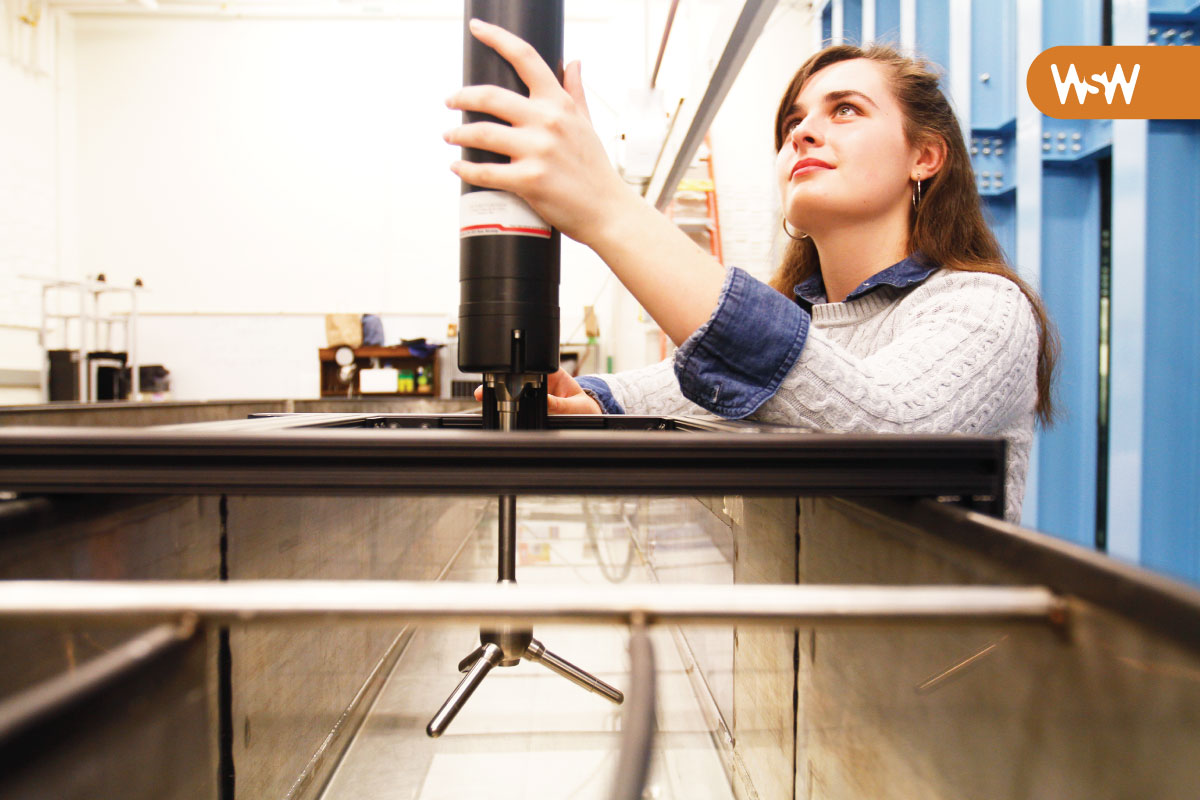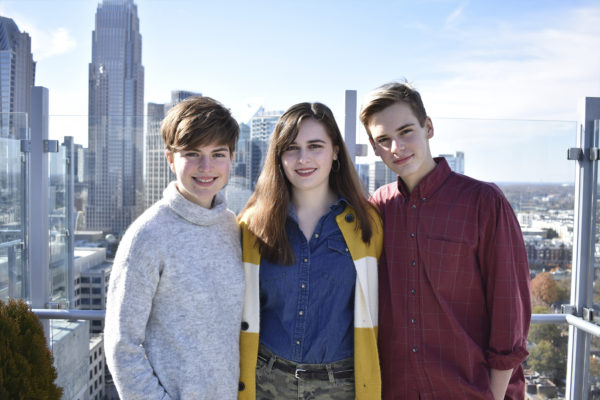When you were a child, what was your response to this question: “What do you want to be when you grow up?”
When I was 8 years old, I was given an American Girl doll — which came with a little notecard with questions and spaces to answer them. When asked this very same question, I wrote down “chemist.” I am often astounded when I remember this little notecard. I don’t know if I knew what a chemist does, or how I even became familiar with the profession, but I somehow knew even at a young age that science was my path.
RESEARCH IN 5 WORDS:
“Clogged streams stop water flow.”
Share the pivotal moment in your life that helped you choose your field of study.
In the summer between seventh and eighth grade, I read “An Inconvenient Truth” by Al Gore. In reading the book, I was shocked by the potential impacts of climate change on the environment. I made a PowerPoint detailing my findings, and created flyers to pass out to my classmates about ways to reduce your carbon footprint on a daily basis. Never before had I felt so motivated to make a difference. I knew from that moment on that I would devote my life to the study of the environment.
Tell us about a time you encountered a tricky problem. How did you handle it and what did you learn from it?
Last summer, I worked with my graduate student mentor — Kaylyn Gootman — on a streambed clogging project. We needed our streambed to be the same height around the entire apparatus, so we cut up foam boards and stuck them down with contact paper. In the moment of truth, as we filled the streambed with water, all of the pieces of foam started to float, and we knew that our experimental design was going to have to change. Looking back, we laugh at this mistake, but that day I learned that making errors in science is not something you can avoid. Your ability to adapt and keep going in the face of failure is an invaluable skill to retain as a scientist.
What are your passions outside of science?
I love music, hiking with my dog, and spending time with my friends and family. Having diverse interests makes a person more well-rounded, and allows for a broader perspective on scientific problems. Scientists are not certain types of people; anyone with passion and motivation can be a scientist.



